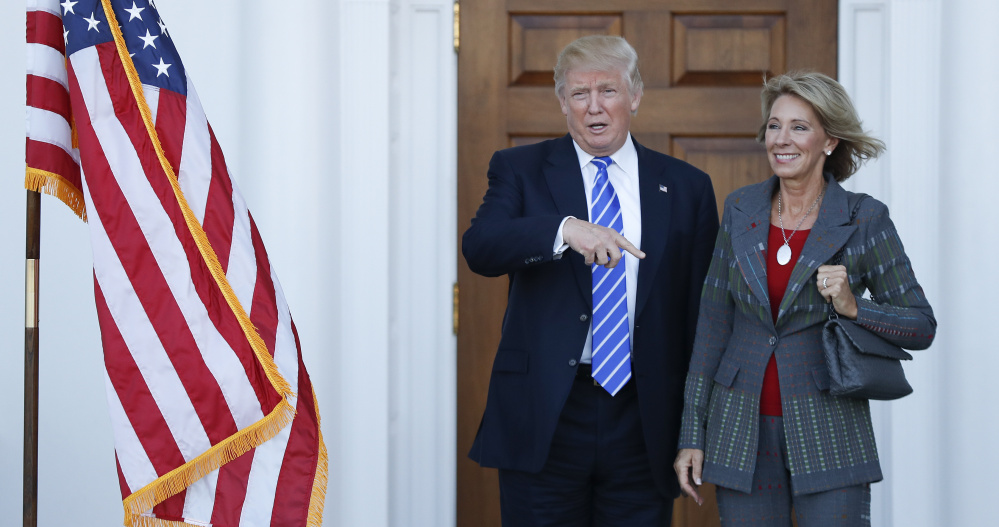Betsy DeVos, President-elect Donald Trump’s pick for education secretary, is not just a prospective Cabinet member seeking confirmation from the U.S. Senate.
She is also a billionaire Republican donor whose family’s donations have funded the campaigns of many of the senators now tasked with voting on her nomination, including members of the committee overseeing her confirmation hearing on Jan. 11.
During the 2014 and 2016 election cycles, DeVos and her relatives gave at least $818,000 to 20 current Republican senators, including more than $250,000 to five members of the Committee on Health, Education, Labor and Pensions (HELP), according to a Washington Post analysis of election records.
DeVos personally made a relatively small percentage of those donations: at least $31,400 to committee members and $96,000 to all senators. But her giving appears to have been coordinated with her family: In most cases, senators received donations from more than a half-dozen DeVos family members, including her husband, on the same day.
To watchdogs, the DeVos family’s contributions create a conflict of interest for senators now charged with judging Betsy DeVos’s fitness to helm the federal education department.
Trump transition officials and DeVos supporters say it’s nothing new for senators – including Democrats – to vote on the confirmation of wealthy nominees who make donations to them.
On Friday, two groups that advocate for reform of money in politics – End Citizens United and Every Voice – called on senators who have received donations from DeVos to recuse themselves from voting on her confirmation. Absent those recusals, “it is impossible to be sure she will receive the scrutiny this important position deserves,” said David Donnelly, of Every Voice.
DeVos supporters push back against the notion that her track record as a donor is unusual, pointing to billionaire Penny Pritzker, Obama’s Commerce Secretary, as one of several recent examples of Cabinet members with a history of making significant donations. In the four years before her nomination, Pritzker donated about $20,000 to Democratic senators who then voted on her confirmation, according to FEC records.
“If you accept the faulty premise that political contributions create a conflict of interest, then any amount is problematic,” said Ed Patru, spokesman for Friends of Betsy DeVos, a group of supporters. “I don’t remember a single Democrat, citing conflicts of interest, recusing themselves from a vote on billionaires like Penny Pritzker.”
Patru said that the DeVos family has given to Republicans for decades because they are ideologically aligned with the party.
“They are proponents of limited government, personal responsibility, free markets and a strong national defense,” Patru said. “Betsy believes labor’s monopolistic stranglehold on public education holds back progress, particularly in communities of color.”
DeVos family members, heirs to the Amway fortune, gave at least $10 million in the 2016 cycle.
Betsy DeVos and her husband, Dick DeVos Jr., have focused their energy and contributions on expanding charter schools and taxpayer-funded vouchers for private and religious schools.
She has previously said that her family expects a return on investments in political candidates and causes, writing in Roll Call in 1997 that she had decided “to stop taking offense at the suggestion that we are buying influence.”
“Now I simply concede the point,” she wrote nearly 20 years ago. “They are right. We do expect some things in return. We expect to foster a conservative governing philosophy consisting of limited government and respect for traditional American values.”
Democrats have singled out DeVos as one of eight Trump Cabinet picks deserving of extra scrutiny and skepticism, arguing that she has no experience as an educator or elected official and has a record of undermining U.S. public schools.
Many Republicans are hopeful that DeVos, asmall-government conservative, will shrink the federal government’s footprint in education
Send questions/comments to the editors.


